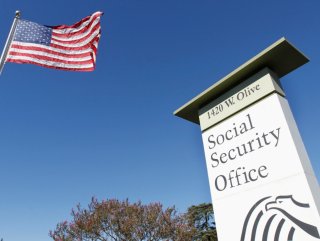Not Everyone Should Wait to Claim Their Social Security Benefits
There is no one size fits all approach to claiming Social Security benefits.
Each year, as millions of American seniors decide to leave the workforce, they must confront an important question that could have a long-lasting impact on their retirement: when is the best time to file for Social Security benefits?
Each individual’s situation can be quite different, and there are indeed times when one should collect at age sixty-two, the earliest age to do so. However, do keep in mind that the longer one waits to file, the higher the monthly checks will be. This could be especially important to remember for those who have a clean bill of health and financial resources to tap into while they wait.
Landing Bigger Checks
“If you’re healthy and have other resources to live off, it pays to wait. Your monthly payment will be 76 percent higher if you wait to start benefits at seventy rather than sixty-two, the earliest possible age,” AARP writes.
The Social Security Administration (SSA) also says on its website that “workers planning for their retirement should be aware that retirement benefits depend on age at retirement.”
“If a worker begins receiving benefits before his/her normal (or full) retirement age, the worker will receive a reduced benefit,” it continues. “A worker can choose to retire as early as age sixty-two, but doing so may result in a reduction of as much as 30 percent. Starting to receive benefits after normal retirement age may result in larger benefits. With delayed retirement credits, a person can receive his or her largest benefit by retiring at age seventy.”
Think About It Carefully
However, as noted by personal finance expert Maurie Backman at The Motley Fool, “while it’s a smart strategy to plan on filing for benefits at age seventy, it’s also an option that may not ultimately work out.”
She goes on to mention that “a big reason seniors are able to delay their Social Security benefits until age seventy is that they have another income source to access in the interim—namely, a paycheck from work. But if you’re forced to retire earlier than age seventy, then you may have no choice but to file for Social Security at a younger age … that’s why you shouldn’t necessarily bank on being able to file for benefits at seventy—even if you’d like to go that route.”
Given this, Backman suggests that workers should focus on building up their nest egg early on in their careers.
“It could mean prioritizing your IRA or 401(k) so you have a more robust nest egg to fall back on in case your Social Security benefits wind up being less generous than you’d like them to be,” she writes.
Ethen Kim Lieser is a Washington state-based Science and Tech Editor who has held posts at Google, The Korea Herald, Lincoln Journal Star, AsianWeek, and Arirang TV. Follow or contact him on LinkedIn.
Image: Reuters

